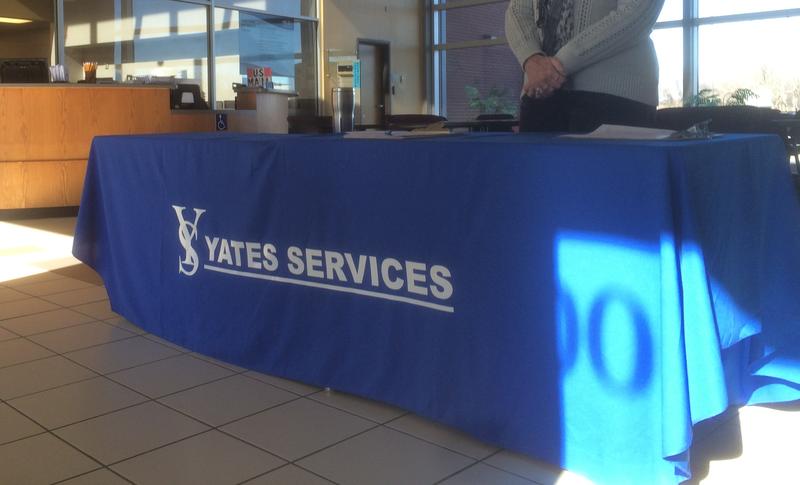
Nissan’s U.S. workforce now stands at 22,000, up from just 13,000 prior to a post-recession rebound. The company’s Smyrna facility, with its 8,400 workers, produced more cars than any other American plant in 2014. But the company’s growth, for the most part, has been through the increasingly common and controversial use of temporary workers.
“We really shirk at the notion of the word ‘temporary,'” Nissan spokesman Justin Saia tells WPLN.
The “contract workers,” as Nissan calls them, are shoulder-to-shoulder with Nissan employees on the assembly line. Saia says the jobs are meant to be long-term, “with good benefits, well above the average manufacturing wage in Tennessee.”
But there’s a major distinction in the hourly wage, which averages $15 an hour for contract workers and $25 an hour for full Nissan employees. Saia says the discrepancy is justified by experience.
“What you’ve got is employees who’ve come to the company as contractors during the recession who are unskilled,” he says.
Before the recession, Nissan enjoyed a stable workforce, in large part, thanks to its relatively generous compensation packages. These were the kind of jobs that could support a family. They came with pensions and big discounts on a shiny Nissan to drive.
The company, which has its North American headquarters in Franklin, boasts about not laying off anybody in those down years, but it did offer buyouts. And when the recovery really kicked in, the company says it needed help ramping up.
Enter The New Middleman

“You need to talk to me,” Greg Persinger tells applicants at a recent job fair in Murfreesboro. “I’m with Yates Services.”
Yates Services sprang up in the last few years and is now one of the few paths to employment at Nissan’s Smyrna plant. The company’s other U.S. assembly line in Canton, Miss., relies on a bigger staffing company called Kelly Services. Yates only works for Nissan.
Yates doesn’t just do Nissan’s hiring. The employees also work for Yates. Benjamin Fouse of Murfreesboro recently applied for a position and was a little disappointed to learn he wouldn’t be working for Nissan directly.
“I hate that. I do,” Fouse says. “I’ve been through it a couple of times.”
It’s become a standard model in much of the manufacturing sector, which has increasingly turned to temporary labor.
But even the lower pay and benefits are attractive to Megan Diebold, who says she’s trying to break into the auto industry.
“I have a friend that works for Yates, and he’s feeding his family,” she says. “That’s all that matters.”
The Path To Nissan
Some Yates employees do transition to full-time status with Nissan. Dan Mantor is a recent convert after two years with Yates. He was so excited, he got a tattoo of the Nissan logo on his tricep.
Mantor doesn’t begrudge the extended trial period.
“I never had a problem with it,” he says. “Even now that I’ve converted over, I don’t ever really notice it — to be honest with you — except for Fridays when you see your check.”
But what Mantor accepts, the United Auto Workers is trying to exploit. The union calls these positions “perma-temps.”
“We think Nissan is the poster child for the abuse of this practice,” says Gary Casteel, who leads the UAW’s organizing drive at transnational plants in the South.
The union is spotlighting temps to get support at Nissan. Casteel acknowledges that the big three Detroit automakers — GM, Ford and Chrysler — which are unionized, also have a two-tier wage structure now. But he points out that union contracts put limits on the practice.
There’s no union in Smyrna. The UAW estimates up to 60 percent of the workforce is in some kind of temporary situation. Nissan contends the number is far less.
“They’ll never give you an answer of the ratio, and that’s not belittling Nissan. That’s just the facts,” says Rep. Mike Sparks (R-Smyrna), who worked for eight years at the plant.
Whatever the figure is, the criticism is coming from more than just labor groups. Sparks says he’s no fan of the UAW, but he’s fed up with the temps. He wants to make sure the company, which has taken millions of dollars in state subsidies, isn’t receiving that money based on creating temporary jobs.
“You want to let the free market determine these things,” Sparks says. “But remember, once the government is involved, free market is off the table.”

Currently, the free market is leaving Robert Bruhn with few choices. He’s a temporary, full-time worker and drives an hour each way from his rural home to Nissan’s Smyrna plant. He’s put 60,000 miles on the commuter car he bought when he started two years ago.
Bruhn says he’d gladly take a job closer to home, even for a couple dollars less an hour. But Nissan is still the best deal around.
“They can get away with it because there’s enough people out there who need jobs,” he says. “I mean, people have to work.”


